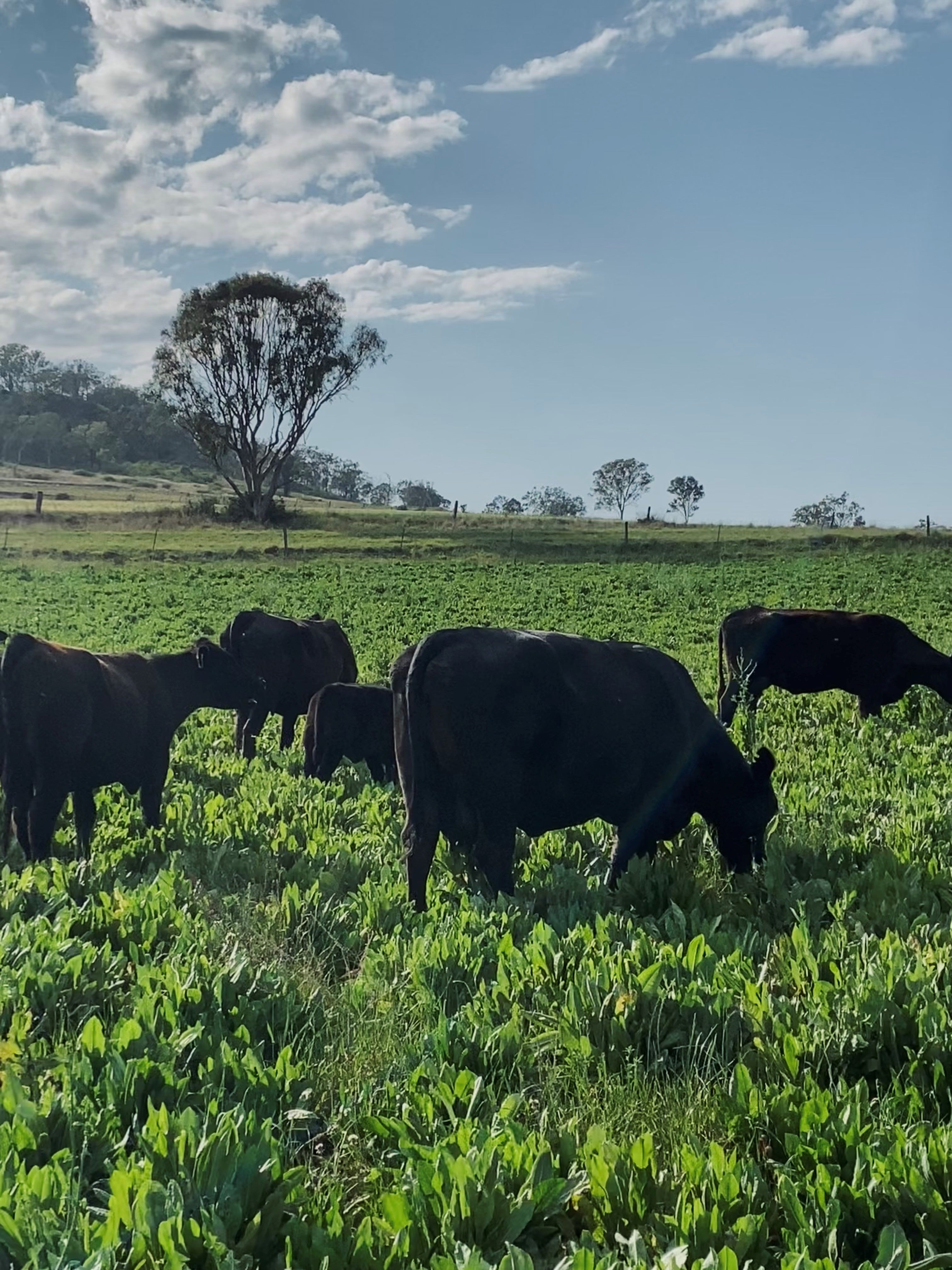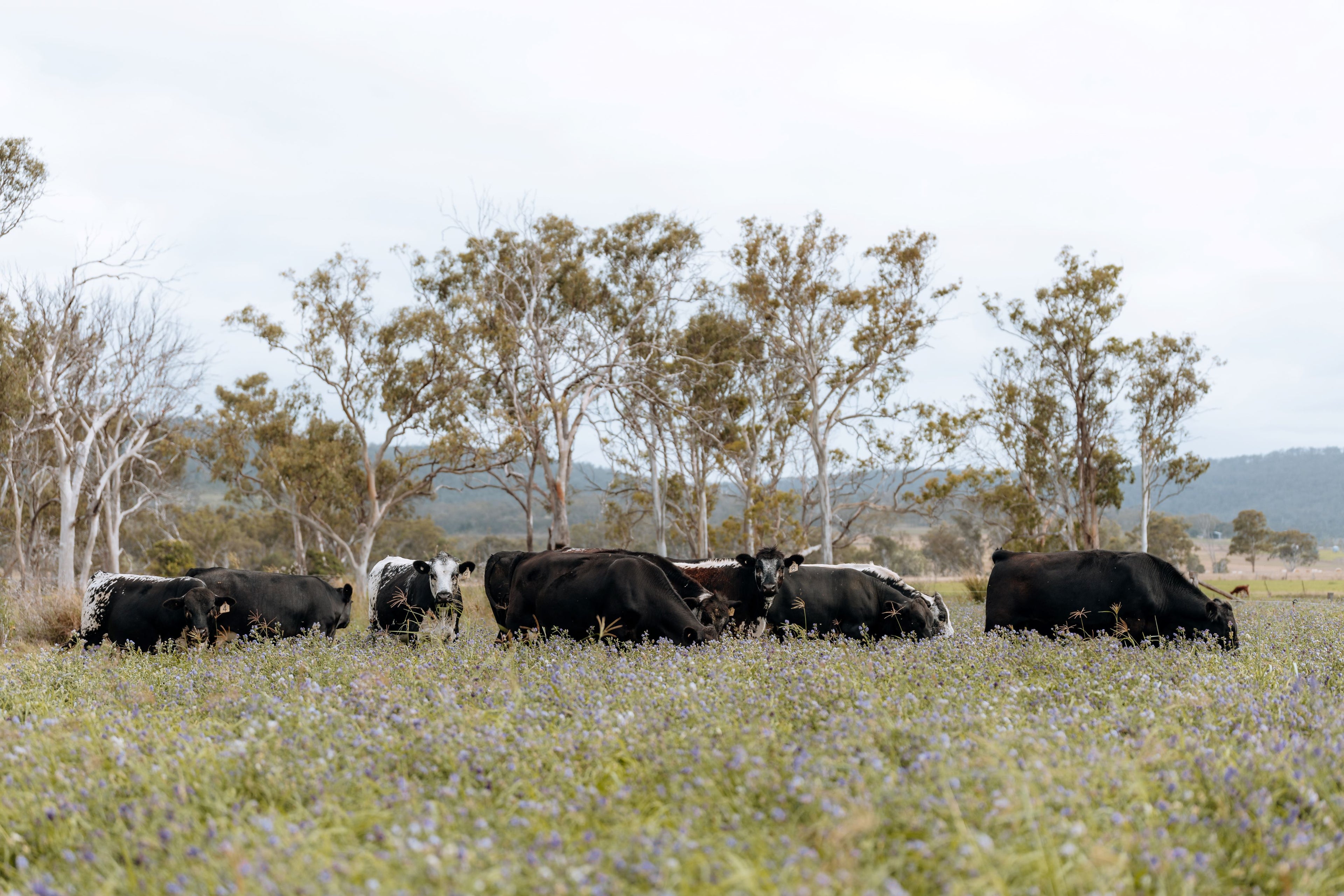
Why Grass Fed
Grass-fed beef offers a distinct, natural flavour that many discerning palates appreciate. The animals' natural diet of fresh grasses gives the meat a richer and more complex taste, often described as earthy and savoury. Additionally, grass-fed beef tends to be more tender and juicy, offering a premium culinary experience.
Nutritional superiority.
Grass-fed beef is renowned for its higher nutrient content compared to conventionally raised, grain-fed cattle. It is leaner and packed with essential nutrients like Omega-3 fatty acids, which are known to promote heart health, reduce inflammation, and support brain function. Grass-fed beef also contains more antioxidants, vitamins, and minerals, making it a nutrient-rich choice for your diet.
Ethical and Sustainable Farming.
Choosing grass-fed beef supports a more humane and environmentally responsible farming practice. Cattle are raised in open pastures, allowed to graze on natural grasses, and are not subjected to the crowded and confined conditions associated with factory farming. This more ethical approach not only ensures healthier and happier animals but also contributes to reduced carbon emissions and overall environmental sustainability.
Superior Taste and Texture.
Grass-fed beef is prized for its superior taste and texture due to the natural, nutrient-rich diet that cattle consume. The grass-based diet enhances the meat’s flavour, giving it a rich, earthy taste that's more complex than grain-fed beef. This diet also contributes to a firmer, more tender texture, as grass-fed cattle tend to be leaner with higher levels of beneficial omega-3 fatty acids. The slower growth process allows for better muscle development, resulting in a steak that’s not only flavorful but also has a satisfying bite, making it a preferred choice for those who value quality and authenticity in their meat.
Lower Environmental Impact.
By supporting grass-fed beef production, you are endorsing a farming model that is more ecologically sound. These systems promote healthy soil, reduce the need for synthetic fertilizers and pesticides, and encourage biodiversity. Overall, grass-fed beef has a smaller environmental footprint, contributing to a more sustainable and harmonious relationship with the land.

